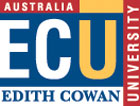Bachelor of Science (Horticulture)
Bachelor of Science (Horticulture)
Grow your knowledge in the innovative field of horticulture, including plant propagation, sustainable production and postharvest biology and technology of horticultural produce. This major has a strong emphasis on both laboratory and field experiences, as well as industry engagement, to consolidate theoretical knowledge and practical skills and prepare you for…
Categories
COURSE DESCRIPTION
Grow your knowledge in the innovative field of horticulture, including plant propagation, sustainable production and postharvest biology and technology of horticultural produce.
This major has a strong emphasis on both laboratory and field experiences, as well as industry engagement, to consolidate theoretical knowledge and practical skills and prepare you for professional practice.
Learning Outcomes
Apply broad discipline knowledge to a range of theoretical and practical horticulture situations.
Analyse experimental data using horticulture approaches.
Formulate hypotheses, design and undertake experiments to generate solutions to horticulture problems.
Synthesise relevant information from multiple sources using digital technologies.
Communicate horticulture knowledge and values in professional and public contexts.
Incorporate diverse perspectives into scientific practice, applying a global outlook and including Aboriginal and Torres Strait Islander cultural perspectives.
Work collaboratively with others, encompassing social, sustainable and ethical values into scientific practice.
Apply own learning to professional practice.
Career Opportunities
Employment opportunities
Horticulture graduates are employed across a wide range of organisations and industries including the Department of Primary Industries and Regional Development, Agrochemical companies, Nurseries, Parks and Gardens, Farming, Packhouses, Wholesalers, Retailers and Exporters, Australian Quarantine and Inspection Service, Biosecurity – Department of Agriculture.
Possible future job titles
Horticulturalist, Horticultural Project Officer, Agricultural and Horticultural Plant Operator, Administration Officer, Waterways Plant Operator, Bush Regenerator, Garden Maintenance Officer, Nursery Officer, Night Spray Operator, Plant Technician, Orchard Technician, Retain Irrigation Salesperson, Consultants, Plant Care Worker, Nursery Staffer, Horticultural Technician, Horticultural Inspector, Plant Quarantine Officers, Biosecurity Officers, Government & Agency Inspection, Nursery Manager, Plant Line Supervisor, Greenhouse Production Manager, Production Manager
REQUIREMENTS
There are various ways to meet our admission requirements, such as:
Secondary school results
Successful completion of one year of tertiary study from a recognised institution
Completed Diploma program from a recognised institution
English competency requirements:
IELTS Academic: An overall band minimum score of 6.0, with no individual band less than 6.0. (Results are typically valid for 2 years and online tests are not acceptable.)
TOEFL iBT: 70 (no individual score less than 17)
TOEFL Paper-Based Test (PBT): Minimum score of 550, including Test of Written English of 5 or better. (Results are typically valid for only 2 years.)
Pearson Test of English (PTE) Academic: 52, with no scores less than 50. (Results are typically valid for only two years.)
EDUCATIONAL INSTITUTION
Edith Cowan University (ECU) is a large, multi-campus institution serving communities in Western Australia and internationally.ECU was awarded university status in 1991, but despite its relative youth, the University has a proud history of more than a century of service to education in Western Australia and is recognised for its teaching and learning, excellence in research, and partnerships with the community.We have more than 23,300 students, including around 18,500 undergraduates and 4,800 postgraduates. Approximately 3,600 international students attend the University, originating from 104 countries.We are a progressive University with courses developed through ongoing industry input, and employing lecturers who engage fully with their students. We’re a university that knows while knowledge is important, understanding comes from experience –experience that enables you to adapt what you’ve learned to whatever opportunities come your way. Because that’s when you do more than just survive in this world. You thrive in it.




